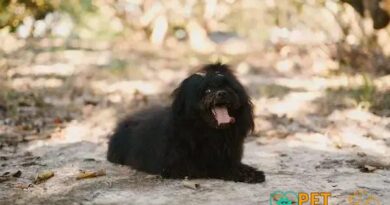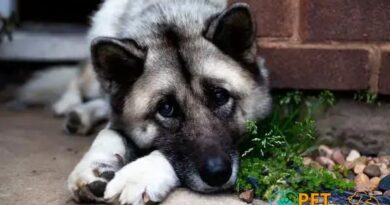What is: Youthful dog behavior
Understanding Youthful Dog Behavior
Youthful dog behavior refers to the energetic and playful actions exhibited by dogs in their early stages of life. This phase typically encompasses puppies and young adult dogs, where their natural instincts and exuberance are at their peak. Understanding these behaviors is crucial for pet owners, as it helps in nurturing a well-adjusted and happy canine companion.
Playfulness and Energy Levels
One of the most prominent characteristics of youthful dog behavior is their high energy levels. Young dogs are often seen engaging in playful activities, such as running, jumping, and playing with toys. This playfulness is not only a form of exercise but also a way for them to socialize with other dogs and humans. Owners should encourage this behavior through regular playtime and interactive games to promote physical and mental stimulation.
Curiosity and Exploration
Youthful dogs are naturally curious creatures. They tend to explore their surroundings with enthusiasm, sniffing everything in sight and investigating new sounds and sights. This behavior is essential for their cognitive development, as it helps them learn about their environment. Owners should provide a safe space for exploration while supervising their pets to prevent any potential hazards.
Socialization Skills
During their formative years, dogs develop crucial socialization skills. Youthful dog behavior often includes interactions with other dogs and people, which are vital for their emotional well-being. Positive experiences during this stage can lead to a well-adjusted adult dog. Owners should expose their young dogs to various environments, people, and other animals to foster healthy social skills.
Training and Obedience
Training is an integral part of managing youthful dog behavior. Young dogs are highly receptive to learning, making this the perfect time to instill basic commands and good manners. Consistent training sessions, using positive reinforcement techniques, can help shape their behavior and establish a strong bond between the dog and its owner. This foundation is essential for preventing behavioral issues in the future.
Chewing and Teething
As puppies grow, they go through a teething phase that can lead to increased chewing behavior. This natural instinct can sometimes result in destructive actions if not properly managed. Providing appropriate chew toys and redirecting their attention can help alleviate discomfort while protecting household items. Understanding this behavior is crucial for maintaining a harmonious living environment.
Affection and Bonding
Youthful dogs often display affection through various behaviors, such as cuddling, licking, and following their owners around. This affectionate behavior is a sign of their attachment and desire for companionship. Engaging in bonding activities, such as grooming and training, can strengthen this connection and promote a sense of security for the dog.
Behavioral Challenges
While youthful dog behavior is generally positive, it can also present challenges. Issues such as excessive barking, jumping, or separation anxiety may arise. Recognizing these challenges early on allows owners to address them effectively through training and behavior modification techniques. Seeking professional help from a dog trainer or behaviorist can also be beneficial.
Health and Nutrition
A young dog’s behavior is closely linked to its overall health and nutrition. Proper diet and regular veterinary check-ups are essential for maintaining their energy levels and preventing behavioral issues. Owners should ensure their dogs receive a balanced diet tailored to their age and activity level, as this can significantly impact their behavior and well-being.
Conclusion: Embracing Youthful Dog Behavior
Understanding and embracing youthful dog behavior is key to raising a happy and well-adjusted pet. By providing the right environment, training, and socialization opportunities, owners can nurture their young dogs into confident and well-behaved adults. Recognizing the importance of this developmental stage will lead to a fulfilling relationship between dogs and their owners.




